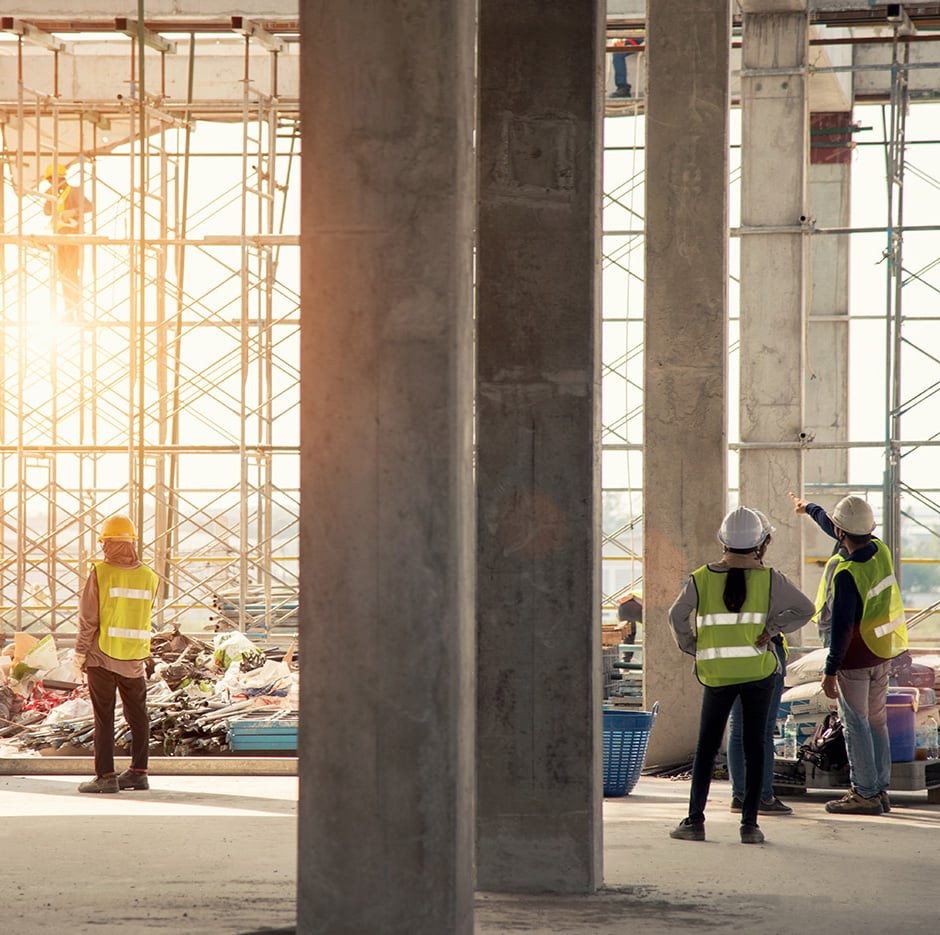Advanced Facilities Management Systems in the Construction Industry

Creating a commercial building is never simple. Every construction project includes a vast array of equipment—from HVAC systems to plumbing, lighting and security—that will shape how the building functions. Increasingly, they also include smart technology that powers automation and delivers a modern experience for building occupants. As what was once considered nice to have becomes a must-have, the roles of the architect and the general contractor have had to expand to meet new and shifting expectations.
While these changes can make for more efficient, sustainable, and functional buildings, they also can increase budgets and add complexity. This means facilities management in construction must get in front of system integration. The best way to do that is to partner with a master systems integrator (MSI) as early as possible—ideally during design, but certainly during construction. With the right partner, you can make modern construction projects a little more simple and lay the groundwork for your development customer’s long-term success.
What Automation Can Do
For nearly a century (and arguably much longer), buildings have been getting smarter and increasingly automated. This was simple at first—doors that opened when people passed, lights that came on when rooms were entered, etc. Now, it has become significantly more sophisticated, with new construction demanding some form of automation in nearly every system.
Smart Lighting
Years ago, buildings began to upgrade to LED lighting to increase sustainability and cut down on energy costs. While that was a good start, smart technologies are now expanding the possibilities of efficiency in lighting systems. Using IoT sensors to monitor variables like daylight and occupancy, lighting can respond to real-life conditions in real time, leading to a 20-40% reduction in costs, with some estimates as high as 50%.
HVAC
HVAC systems are typically the most energy-intensive systems in commercial buildings—and much of that energy is wasted. Unnecessary heating and cooling not only adds to utility costs, but adds wear and tear to equipment that can dramatically reduce its useful life. Automated HVAC systems function according to time of day, occupancy, season, outdoor temperatures, and humidity to ensure buildings—or even individual rooms—are heated, cooled, and ventilated when it’s needed without wasting energy when it’s not.
Air Quality
Today more than ever, air quality is a key consideration in commercial buildings. Integrating smart air quality monitoring systems that automatically adjust ventilation and air filtration systems to ensure healthy and safe indoor environments is one of the best ways to protect occupants.
Deploying an advanced facilities management system in construction allows you to get the most out of advanced automation at every stage of the process.
Analytics Empowers Proactive Maintenance
Buildings constructed with future-focused facilities management system can offer valuable benefits:
Better space utilization
Streamlined maintenance
Increased sustainability
Reduced energy costs (without sacrificing comfort)
Conventional automated systems can be helpful in achieving these goals, but they can only go so far. Unifying building systems and applying advanced analytics can take a building further.

Integrating systems and adding analytics allows building operators to gain visibility into complex networks of equipment, sensors, and devices in real time. An intelligent analytics platform can offer the insights needed to see what is happening within a building at all times and understand the relationships between multiple systems and environmental variables. These insights allow the building’s managers to set more accurate parameters for alerts, streamline maintenance, and deploy effective automation strategies that optimize energy efficiency. As a result, systems work better, the lifespan of equipment is extended, and the occupant experience is enhanced. All of this happens after construction, of course, but what happens during construction determines the extent to which this level of management is possible on Day 2. It may not be directly within your scope as a general contractor or construction manager to implement the integration technologies that enable 21st century building management, but your customers surely care about them.
Plus, deploying a basic building management system can be expensive; it costs at least $2.50 per square foot, rising to $7.00 per square foot in some cases. These costs can be minimized when less integration happens during construction, allowing building owners to maximize their return on investment. Additionally, an analytics-led building management system can provide valuable guidance throughout the construction process itself, giving you the opportunity to evaluate and refine designs and configurations before they are baked in. Your customers are investing in these systems, it makes sense to help them get the most out of them for the long-term.
The Value of a Master Systems Integrator
There are a lot of moving parts on any large-scale construction site, and adding advanced automation systems makes it even more complicated, especially when each system is installed by a different contractor. By seamlessly unifying systems, a master systems integrator (MSI) might be your most valuable contractor.
An MSI works with all your other contractors to understand the needs of the building, the priorities of the building owner, and the technologies being used. They’ll collect drawings and submissions from contractors and vendors to architect a building management system that allows you to integrate the building’s network of equipment, sensors, and devices with intelligent analytics software. They can also offer advice about which systems to select for the best results and help you help the owner identify the automation strategies that will provide the greatest benefits.

